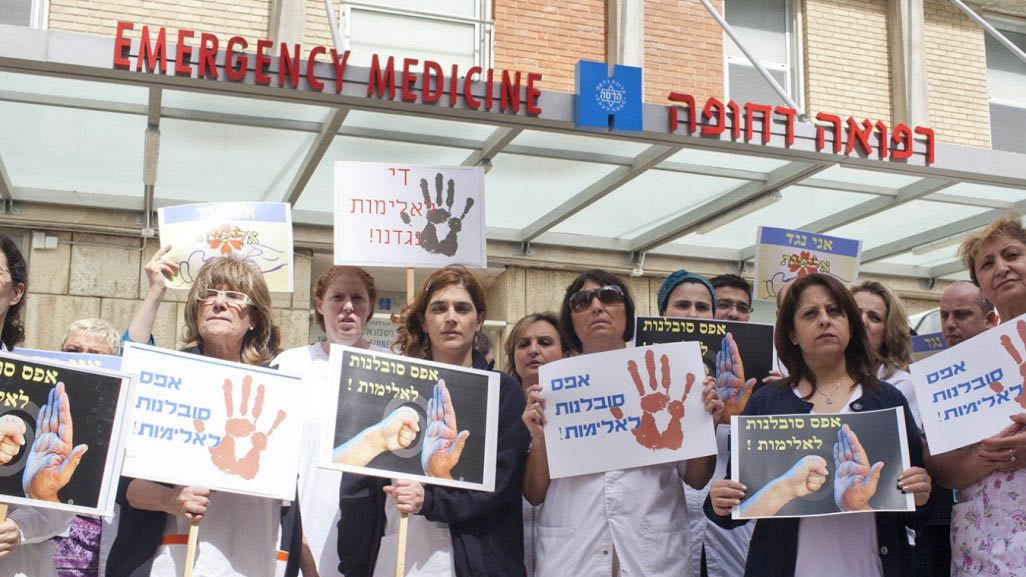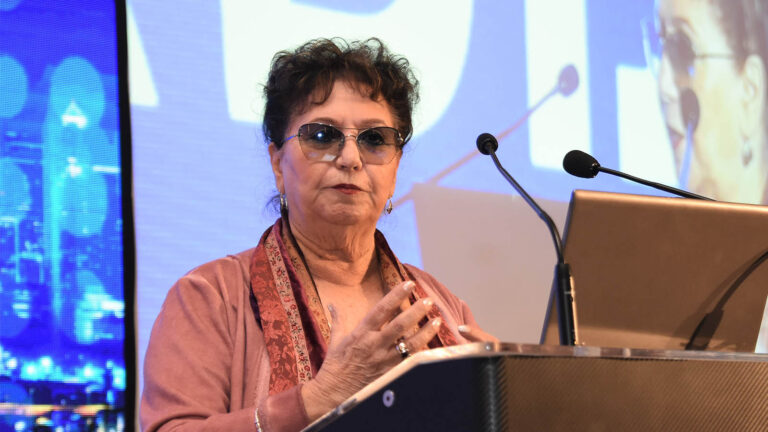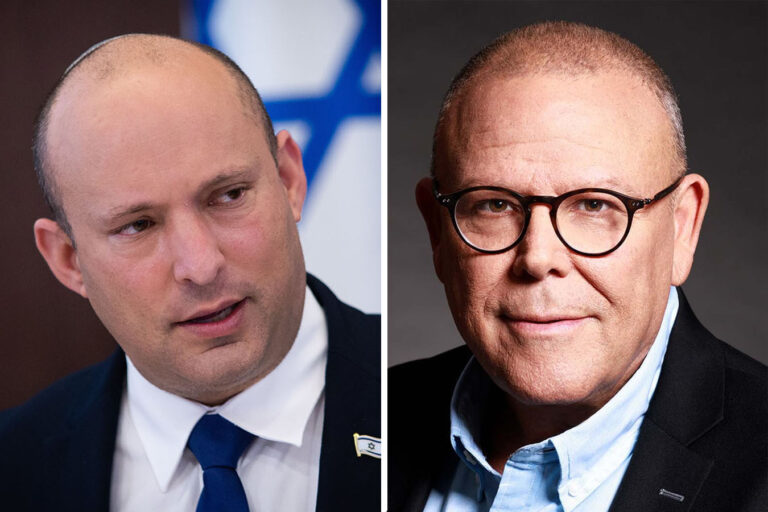
Last Wednesday, all nurses working in Israel’s hospitals, the Clalit and Meuhedet HMOs, and the Ministry of Health went on strike in protest of the violence against medical workers in the health system, demanding the state act immediately. The action, defined as a warning strike, lasted 24 hours.
Tests, vaccinations and non-urgent surgeries were completely cancelled except for essential services, and hospitalization wards in hospitals operated on a weekend basis. The COVID-19 departments and testing operated as usual.
The strike took place against the background of serious assault incidents that have occurred recently against medical staff, including at Rambam Hospital where a doctor was attacked, and at the Lev Hasharon Psychiatric Center where a nurse was attacked by a patient. Despite agreements with the Ministry of Health on taking measures to prevent violence, they have only been partially implemented so far.
The Nurses’ Union demanded immediate action to eradicate violence in the health system:
-
- General hospitals: Placing a police officer there 24/7 all year round
- Mental health hospitals: The placement of a security guard 24/7 to all closed and legal wards, with hospitalization overseen by an outside body.
- Geriatric Hospitals: Placing two security guards in charge of each institution 24/7.
- Community and public health system: Strengthening of the regional security system with an emphasis on centers of violence.

- The chairwoman of the Nurses’ Union, Ilana Cohen, said ahead of the strike: “Nurses are the mainstay of the public health system and the state must live up to its commitment to protect them while caring for Israeli citizens. It is unimaginable that the State of Israel would neglect, over the course of years, the agreement signed with us to eradicate violence in the health system, and to abandon every day the personal safety of nurses in hospitals, community clinics and public health.”
“We are telling the Ministry of Health and the Israeli government today that we can no stand idly by when hands are raised against the nurses and the medical staff. This is a 24-hour warning strike designed to make it clear that the nurses have decided – enough violence,” Cohen continued.
“The State of Israel had three years to implement the agreement and it chose to abandon us. If the agreement is not implemented immediately, the strike will become permanent and indefinite.”
Histadrut Chairman Arnon Bar-David expressed support for the nurses’ strike in a special letter addressed to Prime Minister Naftali Bennett: “Those who pay for the lack of answers to this issue are not only victims of violence in the workplace, but Israeli society as a whole.”
“I will continue to support and back the nurses in their important struggle for the basic right to go to work and return home in peace,” he added.

Bar-David, who in his letter detailed the dire consequences of the routine of violent incidents, wrote: “The hundreds of cases that continue to accumulate each year could lead to the rise of the medical staff dealing with fear and post-traumatic stress, with declining motivation and patient avoidance. We need not be in this situation, certainly not when all the tools to prevent the next incident are already on the table of the decision-makers.”
“The eyes of the nurses and the eyes of tens of thousands of other workers in the State of Israel are turned towards your government,” he wrote, calling for the prime minister’s personal intervention and for an urgent meeting together with Health Minister Nitzan Horowitz and union chairwoman Ilana Cohen.






